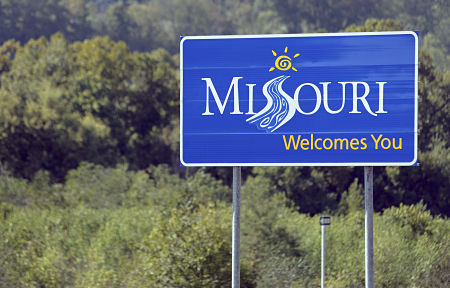The Missouri General Assembly recently defeated legislation that would have created statewide regulations that govern the ride hail industry.

The proposed rules were viewed as a boon to companies such as Uber and Lyft who presently have to maneuver individual city regulations to operate in St. Louis, Kansas City and Columbia.
Kansas City, for example, imposes a $45,000 company annual fee while St. Louis requires fingerprinting, a sticking point within the ride hail industry.
The failed legislation would have required background checks but not fingerprinting. Uber and Lyft say fingerprinting creates an unnecessary barrier to hiring drivers. Proponents of fingerprinting say it would enhance passenger safety.
The proposed legislation would have required a $5000 annual fee. Uber said passage of the statewide regulations would have allowed the company to hire as many as 10,000 new drivers with expansion to Springfield, St. Charles and St. Joseph.
"The regulatory uncertainty certainly slows down our ability to launch new markets," said Uber spokeswoman Lauren Altmin.
Lyft left the state in 2014 after a court ruled that the company could not operate pending a lawsuit filed by the Metropolitan Taxicab Commission. The commission argued that Lyft should be held to the same rules and regulations as taxicabs and limousine services.
"We are hopeful state leaders can find a way over the next year to join over 30 states that have passed common-sense rules for ridesharing," said Lyft spokeswoman Alexandra LaManna.
Missouri Chamber of Commerce and Industry President and CEO Dan Mehan said the bill's death "sends the wrong signal" to millennials, which he said could hinder recruitment efforts by companies.
Brad Green, director of legislative and regulatory affairs for the Missouri Chamber of Commerce and Industry, testified in favor of the bill.
“We support these type of private innovative efforts that transportation network companies bring to the marketplace and recognize the need for reasonable regulation and we urge the committee to approve this bill,” Green said.
The ride hail companies are fighting regulatory battles on a number of fronts:
• In New York, legislators are having some of the same arguments – statewide rules and regulations and insurance requirements. Uber and Lyft want statewide regulations that would allow them to operate across the board. Lawmakers want to leave local governments on the hook for those rules.
"We are glad that the legislature is discussing ways to make ridesharing a reality," said Uber spokeswoman Alix Anfang. "We look forward to working with the Assembly to bring economic opportunities and better transportation options to all New Yorkers."
A group of New York taxi cab owners is urging lawmakers to require the firms to fingerprint drivers and make cars accessible to disabled passengers before signing off on any expansion. James Weisman, president and CEO of the United Spinal Association, sent Gov. Andrew Cuomo a letter last week urging him to require the companies to make their vehicles accessible for wheelchair users.
• In California, the legislature is still grappling with what government entity will regulate the ride hail industry. The California Public Utilities Commission (CPUC) has the job now but doesn’t want to keep it.
CPUC President Michael Picker is telling anyone who will listen that he’d rather not have to deal with ride-sharing companies anymore.
“They aren't something we can do effectively," Picker said of regulating the industry at a March Assembly committee hearing.
The agency has just 22 investigators statewide to enforce regulations for ride-sharing as well as tour buses, limousines, ferries, water taxis and moving companies, all of which are under its jurisdiction.
Uber and Lyft have been successful in winning a number of regulatory battles and have established a powerful lobbying presence at the Capitol.
In April, more than 100,000 Californians drove for Uber, transporting 2.3 million passengers.
“Counting our drivers, that’s 2.4 million different people who used our technology last month,” said Uber Director of Public Affairs Aaron McLear. “That’s a giant shared constituency with these policy makers.”
